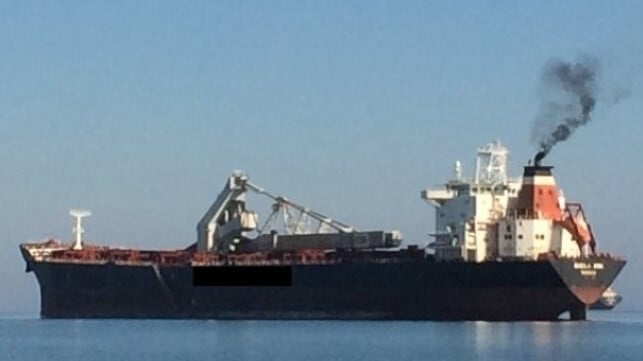INTERCARGO Says CII has “Significant Flaws” in Current Format

INTERCARGO, the association representing owners, operators and managers in the dry cargo sector, is the latest among shipping trade groups and owners to speak out against the IMO’s new Carbon Intensity Index (CII) calling for alternate mid-term approaches to the decarbonization of the shipping industry. With the IMO’s Marine Environment Protection Committee (MPEC) scheduled to convene its next session, INTERCARGO joins others in saying there are “significant flaws that need to be addressed in order to make CII fit for purpose.” They are calling for a broader industry-wide approach.
The association says during its recent semi-annual meetings, members expressed their “belief that CII cannot be used to achieve the desired decarbonization goals.” While saying it continues to fully support the ambition to achieve net zero emission shipping by 2050, INTERCARGO says members highlighted their belief that under real life operating conditions, CII will not deliver “equitable, transparent, and non-distorting emissions’ reductions.”
They are saying that the responsibility for decarbonization cannot be placed solely on ship operators. The organization says it must be a holistic solution dealt with by the entire shipping industry.
Like others, they point out that operating factors can significantly impact a vessel’s CII rating along with steps that can be taken to artificially adjust the outcomes. They point to factors outside the vessel’s control such as adverse weather, voyage distance, port waiting times, and port infrastructure. They also point to the inherent potential conflict between owners and charters who control the vessel’s operations. BIMCO, for example, called for charters to take responsibility for the CII rating based on their control of the vessel.
“Paradoxically, when considering voyage distances and port waiting times, vessels with longer travel distances can produce more emissions but have a better CII rating when compared to vessels traveling shorted distances and producing less emissions,” writes INTERCARGO.
The trade association is calling for appropriate policies to ensure that green fuels as secured as well as the necessary infrastructure is available to support bunkering around the world. “Unfortunately, these aspects are not sufficiently discussed and addressed despite their critical role,” writes INTERCARGO.
Their position is that a combination of core elements of previous proposals is the best way forward. INTERCARGO believes that a flat rate contribution per ton of CO2 emitted on a tank-to-wake basis should be combined with a mechanism where ships of 5,000 GT and above will make an annual contribution per ton of CO2.

that matters most
Get the latest maritime news delivered to your inbox daily.
INERCARGO says under such a scheme, only ships that use eligible alternative fuels would receive a reward for CO2 emissions prevented.
Combining technical and economic measures, along with appropriate policies and commitments from member states to ensure the supply of alternative fuels, INTERCARGO believes provides the best mid-term policy to achieve the targeted decarbonization goals.
